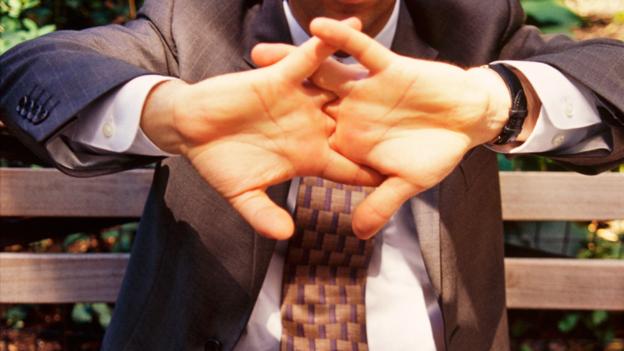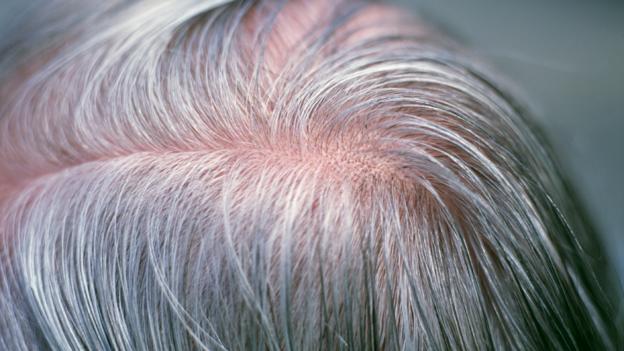If you think gum disease is something that only happens to people in their old age,think again! Young adults and teenagers can get gum disease too, but proper oral hygiene can keep it at bay, writes Rita Ohai
WHILE many pay attention to other parts of the body, the gums which stand at the gateway for internal organs is often ignored thereby putting the entire body at risk.
As a Chinese proverb says, "A smile will gain you ten more years of life." These words were written countless centuries ago, yet today they ring more true than ever. The links between oral health and overall health are being established on a near daily basis and the implications are shocking.
The mouth is a busy place, with millions of bacteria constantly on the move. While some bacteria are harmless, others can attack the teeth and gums.
“If a person's gums bleed when they brush their teeth, chances are they already have the mildest form of gum disease and this can increase their chances of getting diabetes or a heart problem,” says Dr. Vera Amuh, a dentist at the Ben Idahosa Dental Clinic, Benin, as she tries to explain the connection between healthy gums and other parts of the body.
“Gum disease can be sneaky. Many times the people who carry this disease do not even know it because it rarely shows any pain or irritation until permanent damage is done to your teeth. That's why regular dentist visits are things that everybody should make a part of their lifestyle so that they can spot trouble before it becomes full blown.”
 Although the long term effects of carrying bacteria in the mouth can lead to some level of discomfort in the jaw area, there are often heavier repercussions.
Although the long term effects of carrying bacteria in the mouth can lead to some level of discomfort in the jaw area, there are often heavier repercussions.
Further revealing basic facts on gum health, Dr Vera says, “When you take a look at your teeth in the mirror and you find a colourless, sticky film called plaque around there, it is time to start paying attention. When the film is not removed regularly by brushing, plaque builds up on the teeth and ultimately irritates the gums and causes bleeding.The beginning stage of gum disease is gingivitis.
“If gingivitis is not treated, it can lead to periodontitis, which occurs when plaque spreads below the gum-line. The bacteria associated with plaque produces toxins, which trigger further inflammation.”
Over time, this heightened inflammatory response will ultimately deteriorate the bones and tissue that support the affected teeth, eventually leading to tooth loss.
As periodontitis sets in, the dentist would have to take major damage control measures to save that patient's teeth. That's why brushing and flossing every day and regular trips to the dentist are important.
Since a large volume of bacteria live in the mouth, keeping plaque at bay can be a constant battle. This is essentially why feeding on a poor diet, too little sleep, and too much stress leaves people more vulnerable to infection anywhere in the body, including the gums, Dr. Vera said.
To avoid these problems, dentist suggests that patients rush to the clinic once they notice any of these signs:
•Bleeding of the gums that occurs regularly when brushing or flossing.
•Discoloration of gums (healthy gums should look pink and firm, not red, swollen, or tender)
•Any sign of gums pulling away from teeth.
•Bad breath that won't go away.
•Loose teeth
Factors that contribute to gum disease
WHILE plaque is the primary cause of periodontal disease, scientists say that other factors are thought to increase the risk, severity and speed of gum disease development. These can include:
Tobacco use is one of the most significant risk factors associated with the development of periodontitis. People who smoke are seven times more likely to get periodontitis than nonsmokers, and smoking can lower the chances of success of some treatments.
Clenching and grinding teeth may put excess force on the supporting tissues of the teeth and could speed up the rate at which these tissues are destroyed.
Hormonal changes sometimes make gums more sensitive and make it easier for gingivitis to develop.
Stress often makes it difficult for the body's immune system to fight off infection thereby giving micro-organisms the avenue to attack the body system.
Medicationscan affect oral health because they lessen the flow of saliva, which has a protective effect on teeth and gums. Some drugs, such as the anticonvulsant medication and the anti-angina drug, Nifedipine, can cause abnormal growth of gum tissue.
Poor nutrition is known to make it difficult for the immune system to fight off infection, especially if the diet is low in important nutrients. Additionally, the bacteria that cause periodontal disease thrive in acidic environments. Eating sugars and other foods that increase the acidity in the mouth increases bacterial counts.
Prevention tips
THE good news is that in most people gum disease is preventable. Attention to everyday oral hygiene by brushing and flossing, coupled with professional dental visits twice a year, could be all that's needed to prevent gum disease and help you keep your teeth for a lifetime. The steps that can be taken at home are:
Brush twice a day for at least three minutes each time, about the length of your favourite song, and floss daily. If you're not sure whether you're brushing or flossing properly, your dentist or dental hygienist can show you the best techniques.
Always brush with toothpaste that contains fluoride. Some dentists also recommend daily mouth rinses containing fluoride. However, in place of a mouth wash, a very effective rinse is found in the combination of salt and water.
Use a toothbrush with soft, polished bristles, as these are less likely to irritate or injure gum tissue. Be sure to replace your toothbrush at least every three to four months because a worn-out toothbrush can injure your gums.
Eat a healthy diet. Avoid snacks and junk foods packed with sugar that plaque-causing bacteria love to feed on.
Don't smoke! Cigarettes and chewing tobacco cause mouth irritation and are very unhealthy for gums and teeth.











